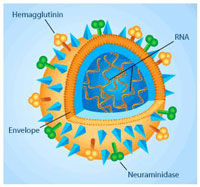Study shows the pervasiveness of biotechnology in Europe's economy
The Joint Research Centre (JRC's) study "Consequences, Opportunities and Challenges of Modern biotechnology for Europe", better known as the Biotech for Europe (Bio4EU) study is the largest study ever of its kind in Europe, according to EuropaBio. The Bio4EU study will be published at an EU symposium where the main findings will be presented and discussed as well as the Mid-term review of the EU Strategy on Life Sciences and Biotechnology. EuropaBio - the EU Association for Bioindustries - welcomes the results of the socio-economic impact study of biotechnology which show the pervasiveness of biotechnology across all major economic sectors in Europe. The study's figures are compelling: they confirm that life sciences and biotechnology have grown to be central to several industrial sectors of the EU economy. They also confirm the dramatic contribution of biotechnology to progress in medicine for the benefit of patients despite the continuous rationing of healthcare practiced by Member States.
Some key facts and figures:
- Modern biotechnology and its applications generate almost 2% of EU gross value added, indicating that its importance is comparable to Europe's largest industry sectors.
- The European dedicated biotechnology industry directly employs 96.500 people, mostly in SMEs; however given biotechnology's "enabling effect", employment in industries using biotechnology products is many times higher.
- The number of biopharmaceuticals on the market has more than doubled in the last 10 years and the number of biopharmaceutical companies rose from 37 (1996) to 143 (2005).
- 30% of all in vitro diagnostics (IVD) in the EU in 2005 were biotech
- Revenues for biotech vaccines jumped from EUR 65 million in 1996 to EUR 259 million
- In the agroindustry, up to 20% of the sector turnover is now related to biotech
- In Spain, studies show a 12% increase in gross margin for GM maize over conventional production
- In industrial biotech the EU produces about 75% of the world's enzymes
- About 45% of all manufacturing sectors, for example textiles, pulp & paper use modern biotechnology
- Industrial biotech increases labour productivity by 10-20% over conventional processes
The environmental effects of industrial applications are striking: the change from chemical to biotechnological method for the production of a widespread category of antibiotics showed a reduction of the use of electricity of 37%, of solvents of almost 100% and a reduction in wastewater by 90%. Other industrial applications, such as biodegradable plastics and packaging, could bring similar benefits.
"Studies like the JRC's Bio4EU are a valuable tool to help get the word out about the benefits of biotechnology, but it is up to the Member States to adopt EU wide rules and show their faith in the value of the facts and the figures," stated Johan Vanhemelrijck, Secretary General of EuropaBio.
Most read news
Topics
Organizations
Other news from the department business & finance

Get the analytics and lab tech industry in your inbox
By submitting this form you agree that LUMITOS AG will send you the newsletter(s) selected above by email. Your data will not be passed on to third parties. Your data will be stored and processed in accordance with our data protection regulations. LUMITOS may contact you by email for the purpose of advertising or market and opinion surveys. You can revoke your consent at any time without giving reasons to LUMITOS AG, Ernst-Augustin-Str. 2, 12489 Berlin, Germany or by e-mail at revoke@lumitos.com with effect for the future. In addition, each email contains a link to unsubscribe from the corresponding newsletter.





























































